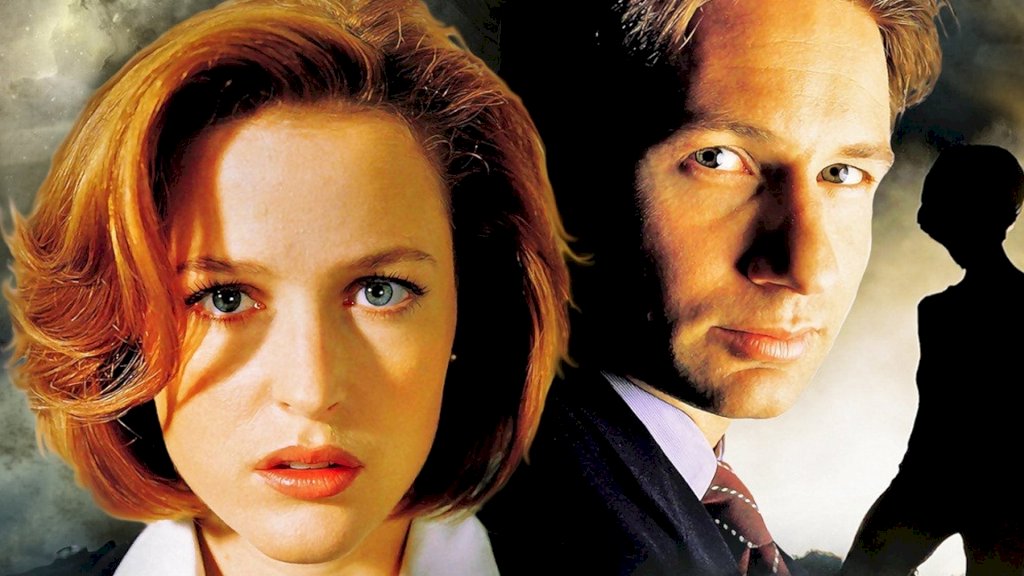In the annals of American television history, there are few series that have left as indelible a mark as "The X-Files." A gripping blend of science fiction, horror, and paranormal investigation, the television show ran from 1993 to 2002, captivating audiences with its compelling storytelling and enigmatic characters. Created by Chris Carter, "The X-Files" was a pioneer in the realm of supernatural thrillers, and this article delves deep into the world of the show, exploring its origins, memorable characters, themes, and its enduring legacy.

The Birth of "The X-Files"

"The X-Files" was born from the creative mind of Chris Carter. Inspired by a desire to blend elements of government conspiracy, paranormal phenomena, and detective work, Carter conceptualized the series as a unique hybrid of science fiction and horror. He envisioned a show that would explore the unexplained and delve into the darkest corners of the unknown.
The pilot episode of "The X-Files" introduced viewers to FBI Special Agent Fox Mulder (David Duchovny) and his skeptical partner, Special Agent Dana Scully (Gillian Anderson). The pilot, aptly titled "Pilot," set the tone for the entire series, combining elements of suspense, horror, and intrigue. Mulder's obsession with uncovering government secrets and Scully's reliance on scientific explanations became the backbone of the show.
The Enigmatic Characters

Fox Mulder, portrayed by David Duchovny, was the driving force behind "The X-Files." His character was defined by an insatiable curiosity, a willingness to believe in the unexplained, and a deep-rooted belief that the government was hiding the truth about extraterrestrial life. Mulder's catchphrase, "The truth is out there," became a rallying cry for the show's themes of uncovering hidden realities.
Dana Scully, portrayed by Gillian Anderson, was the perfect counterbalance to Mulder. A medical doctor and scientist, Scully's skepticism provided a grounded perspective that contrasted with Mulder's unwavering belief in the paranormal. Her character became an inspiration for many, showcasing intelligence and determination in the face of the unknown.

"The X-Files" featured an array of memorable supporting characters, including Walter Skinner (Mitch Pileggi), the duo's enigmatic superior at the FBI; the enigmatic Cigarette Smoking Man (William B. Davis), a shadowy figure tied to government conspiracies; and various monsters and villains who left lasting impressions on the audience.
The Themes of "The X-Files"

At its core, "The X-Files" was about investigating paranormal phenomena, including UFO sightings, alien abductions, and supernatural occurrences. The show's "monster of the week" episodes allowed for a diverse range of mysteries, from shape-shifting aliens to mutant creatures.
The overarching theme of government conspiracy was a driving force in "The X-Files." Mulder's quest to uncover the truth about extraterrestrial life was often thwarted by government cover-ups and shadowy organizations. This theme tapped into a real-world sense of unease about government secrecy and the mistrust of authority.
The Impact of "The X-Files"

"The X-Files" became a cultural phenomenon in the 1990s, inspiring a dedicated fanbase and sparking interest in paranormal and supernatural phenomena. The show's impact extended beyond the screen, with fan conventions, merchandise, and a surge in interest in UFO sightings and conspiracy theories.
The legacy of "The X-Files" endures. It paved the way for other supernatural and science fiction series, leaving an indelible mark on the television landscape. The show's impact on popular culture, the resurgence of interest in the paranormal, and its influence on other TV series cannot be overstated.
The Revival and Beyond

In 2016, "The X-Files" was revived for a limited six-episode series, reigniting interest in the world of Mulder and Scully. While the revival received mixed reviews, it showcased the enduring appeal of the characters and their quest for the truth. Rumors of further installments continue to circulate, indicating the lasting power of "The X-Files."
"The X-Files" popularized the concept of the "monster of the week" episode. While the overarching government conspiracy plot was a core element of the series, many episodes were self-contained stories featuring unique and often terrifying creatures or paranormal phenomena. This format has since become a staple in many TV series, allowing for episodic storytelling alongside an overarching narrative.
The Creative Vision Behind "The X-Files"

The visionary creator of "The X-Files," Chris Carter, was instrumental in shaping the show's unique blend of science fiction, horror, and paranormal investigation. Carter's own interest in conspiracy theories, UFOs, and the supernatural informed the show's themes and narratives. He skillfully crafted a universe where the unknown lurked around every corner, keeping audiences on the edge of their seats.
The success of "The X-Files" can also be attributed to a talented team of writers and directors. Several episodes were written and directed by renowned talents such as Vince Gilligan, Darin Morgan, and James Wong, who contributed to the show's diverse and captivating storytelling. Their contributions helped shape the distinct tone and style of each episode.
The Ongoing Search for Truth

In the ever-evolving landscape of television and popular culture, "The X-Files" stands as a timeless testament to the enduring allure of the supernatural and humanity's insatiable thirst for truth. With its compelling narratives, unforgettable characters, and exploration of themes that persist in captivating and provoking thought, "The X-Files" will forever occupy a cherished place in the hearts of fans and a revered status in the pantheon of groundbreaking television. Whether revisiting classic episodes or anticipating new developments in the quest for the truth, "The X-Files" continues to illuminate the path through the darkness, reminding us that the quest for the unknown is a journey without end.

